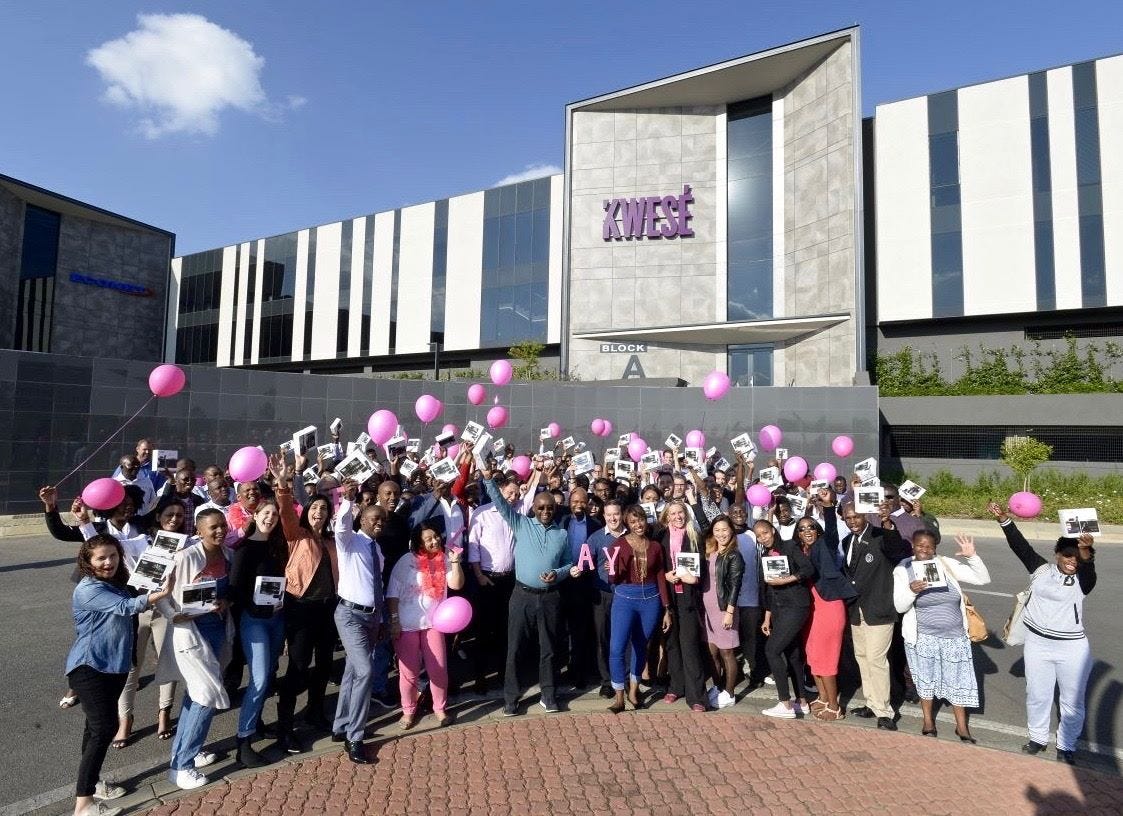Why EcoCash Can't Afford to Lose to InnBucks
While the arrival of Starlink has had many people speculating about Econet’s future, the real threat to Econet is not so much Starlink but services like InnBucks.
Business is about growth, which is why 75% of a company’s valuation is driven by its long-term growth assumptions.
One of the big challenges for Telcos, like Econet, is figuring out where that long-term growth will come from. In the past, growing the subscriber base was the low-hanging fruit; however, that is no longer a viable path.
In many countries, the number of mobile subscribers now exceeds the population. Take South Africa, for example, which has a population of 60.4 million but 116.9 million mobile subscribers.
While this is also due to individuals having multiple mobile subscriptions, it still indicates that the market is saturated such that driving growth from new subscribers is increasingly challenging.
If you cannot increase the number of subscribers, the only other option is to increase the revenue from each subscriber.
To do this, Telcos have been trying to diversify their revenue streams for years and have made several attempts, particularly in the media space, but with little success.
MTN launched a streaming service called FrontRow in December 2014. The service was shut down in May 2017.
Telkom, through Telkom Media, acquired a pay-TV license in August 2008; however, the business was sold off in less than a year.
Perhaps the most daring attempt in recent years was Econet’s launch of Kwese in 2015. Unfortunately, this business lasted less than five years, and by 2019, Kwese was shut down.
In short, Telcos seem to have struggled to succeed in other businesses, except for Mobile Money, also called Mobile Financial Services. This is where Telcos have had the most success.
The best example of this is Safaricom's mobile money service, MPESA.
MPESA has been wildly successful, with some estimating that 59% of Kenya's GDP flows through the service. Its importance to Safaricom’s business also can't be understated.
Between 2020 and 2024, Safaricom’s revenue had a compound annual growth rate (CAGR) of 7.4%, driven by MPESA revenue, which had a CAGR of 13.5%.
However, without MPESA, Safaricom’s CAGR would be 4.1%, lower than Kenya’s inflation rate. In other words, Safaricom's revenue would have been shrinking in real terms without MPESA.
What is equally impressive about MPESA is that this growth rate is for a service launched over 15 years ago. This indicates that Mobile Financial services can drive long-term growth for Telcos.
This partly explains why EcoCash is so important for Econet that it was brought back after it had been demerged about five years earlier. Econet knows they cannot afford to fumble the Mobile Money opportunity.
Unfortunately, EcoCash now has more formidable competition. In the past, EcoCash was the dominant leader. In 2019, it had over 90% of the market share of mobile money subscribers. Its closest competitor at the time was NetOne’s OneMoney, which had just under half a million users compared to EcoCash, which had close to 7 million users.
Now, EcoCash is battling InnBucks, which is partly owned by Simbisa Brands and connected to the Innscor Group of companies.
This is most likely the most significant challenger EcoCash has faced yet. Innbucks has grown quickly and now reportedly has 1.8 million users since its launch at the end of 2021.
But others have also entered the arena. Old Mutual Zimbabwe has launched O’Mari, which is looking to gain market share.
Where’s the Money, What’s the Move?
Econet Wireless Zimbabwe (which now includes EcoCash) has had a depressed valuation over the last few years.
Today, its market cap is ZiG 11 billion, translating to U$300 – U$500 million (using parallel market rates).
At its peak, Econet's combined market cap with Ecocash was about $3.4 billion (using parallel market rates).
If you believe that EcoCash will regain dominance and Econet’s mobile business will weather the challenges faced in previous years (we discussed these earlier here), then Econet could be an interesting company to keep on your watch list.
As always, there are many other variables to consider, some of which we have discussed earlier (see posts from the archives below).
Thanks for reading, what do you think?
Thanks for reading! We need your support. If you find value in what we share, please subscribe and pass this along to friends or colleagues—it would mean the world to us and help us grow together!"
In Case You Missed It: Related posts from the archive to consider checking out:
Econet's Struggles: A Decade-Long Financial Rollercoaster
The End of EcoCash Holdings: Did a Lack of Focus Contribute to Their Struggles?
Does Starlink Mean the End of Econet?
PS: I am working with public information so I could be missing something or simply wrong in my analysis






The aggression that innscor has in its business ventures l don't see ecocash surviving this one consider that simbisa is one of the biggest fast food producers and yet they are pushing people.to use innbucks plus the fact that it's doesn't have a lot of middleman involved people are shunning away ecocash
Buy the pricing of Innbucks is a little dodge or smart depending on how you look at it. They seem to be charging both sender and receiver. Someone sent me $30 and I only received $29.5 and he was charged as well I think they had $35 and he was left with $2. That might lose them customers cause ecocash does not charge the receiver.